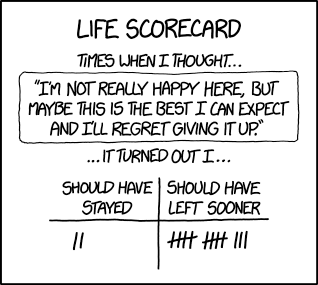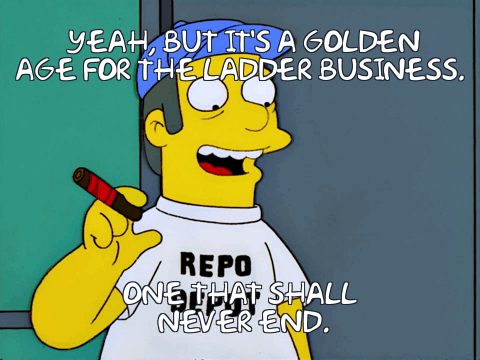Do I have an anti-streaming bias?
November 18, 2020 in digital music by Dan Gravell

Cognitive biases are a fascinating explanation of why we sometimes make irrational decisions.
I was wondering: if the majority of people are making a given decision, and I have a different opinion, does that mean I must be wrong-headed and I have some bias? If the world is switching to music streaming, but I’m here with my Squeezebox like some caveman does that mean I’m not thinking clearly?
I recently finished Thinking Fast and Slow by Daniel Kahneman- a great book about (amongst other things) cognitive biases. It describes how our thinking can be biased in various ways, with the general idea that “System 1” thinking is more intuitive and, in some ways, emotional, with “System 2” being more rational and logical. System 1 is where, in particular, the cognitive biases creep in.
Away from Kahneman, the broad concept of cognitive biases has been one attracting more discussion. It’s pretty common to read about confirmation bias in the current discussion of social media filter bubbles and unconscious bias when considering gender, race or class.
It struck me that if we are all susceptible to cognitive biases (and we are) we should all probably make a conscious effort to review our thoughts, plans and strategies to ensure we make optimal decisions. The first area I thought of this, with regard to music collecting, was around streaming. I’m a self-storer and yet the world has pretty much already moved toward a rented, open access streaming model. What am I missing that everyone else understands? I wondered if a cognitive bias (or biases) were responsible for wrong-headedness.
The streaming / storing quandry
As I said, not so much a quandry for most; it’s streaming all the way. But for me, I’m the opposite, I’m happy to self store. It’s not so much that I don’t perceive a benefit of streaming, it’s more that I can’t see how my current approach to listening fits in with that.
There are also individuals that fall between the stools; some stream for discovering music, but then purchase releases for various reasons (e.g. wanting the vinyl or simply some intangible benefit of ‘owning’ the music).
Sunk cost fallacy
This is a common one - it explains (amongst other things) why people often say they want to “finish what they started”, regardless of the cost of finishing it.

Applied to music libraries, you may say you want to continue to add to and maintain a music library because you’ve already put in a lot of effort and thought as to how it currently works.
I think this thinking is wrong-headed, personally. It can be very difficult to step-back and consider how much effort you are spending on something, but if you can, and the costs outweigh the benefits, I think you should give up and make a switch.
For me, however, this doesn’t explain why I continue to eschew streaming. I recognise that some time is taken purchasing and integrating music, but with automation like using bliss, this sort of thing just doesn’t cost me what I consider a lot of time. We can all think of activities that you could save time doing, but it doesn’t mean doing them is entirely counter-productive, nor what you’d do otherwise is more productive (e.g. just flicking from stream to stream).
IKEA effect
The IKEA effect is a bias where we over-value the things we have built (and in the case of music libraries, continuously built and maintained) ourselves.
If you have put time into building a music collection, it maybe you want to demonstrate your knowledge and exquisite taste by some extant creation; your curated music library. In addition, similar to the sunk cost fallacy you might attribute higher value to the library, simply because of the time you spent building it.
That said, there may be reasons that your curated library is of more value to you, if not generally. You may have genuinely difficult-to-find releases not available on streaming services. Streaming services might not be able to deliver music in a level of audio quality that you desire, and so on.
In my case, I don’t feel I do this. The library I run is, at most, only for my household. I don’t think it has any intrinsic value to anyone else that couldn’t be derived from a streaming service, assuming that service has access to the same content.
Projection bias
I think I am guilty of this a little.

This is the belief that current circumstances can be applied in the future. Thinking through the resources required for hosting a music library, what are the key constraints?
Technical constraints like storage space, or CPU time? No, I think these are getting cheaper all the time.
My own time? Possibly. That said, I already have two small children, a house, a dog and a couple of old cars. My time is probably as stretched as it will ever be, and I’m still managing.
Maybe it’s a question of priorities. If you’re not interested in music collecting, why do it? I am - I like the feeling of builing and maintaining a library, so I make time for it.
Status quo bias
Maybe clinging to a self stored music library is emotional? Maybe it’s nostalgic, memoralising a time when I used to buy the latest CD release from a shop and actually use a CD player? Maybe I just don’t like change? The status quo bias is a preference to current state.
I think there’s a bit of this in me. I like the idea of ‘consuming’ (yuk!) music in the ways I used to, and I see streaming as being, if not completely in opposition, structured and incentivised to pervert that. For example, playlist culture is not something I would immediately subscribe to - I’m an album guy.
Endowment effect
This is where someone retains an asset which, if starting from scratch, they wouldn’t bother to repurchase.
Applied to streaming this means: if my entire music library was stolen (which seems pretty impossible as it’s backed up in many ways, but anyway…) what would I do from the next day.
I think the honest answer is I would end up using a streaming service. The cost of starting over seems too high for the benefits.
But that ignores the important consideration that losing the library seems very unlikely; it’s backed up physically and digitally. Someone would really have to put effort into this!
Am I biased?
Given my musical listening preferences and alround philosophies on life, I don’t think it’s cognitive biases that are influencing my current approach to music.
What I’d like to think is it’s a rational… a System 2… consideration of the costs and benefits of the different approaches to music, given the status quo, and I am continuing to class myself as a “music hoarder”.

At least, I like to think so.
Photo by Juan Rumimpunu on Unsplash

